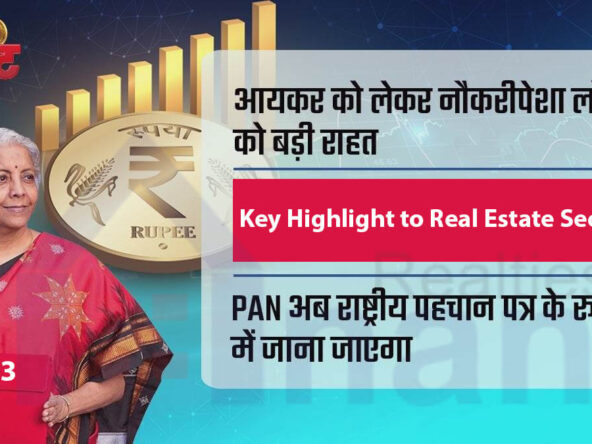Save Capital Gain Tax on Property in India
What is Capital Gain Tax In India?
Few people are aware of the capital gains tax. According to the Income Tax Act, capital gain tax is not paid in India when a property is transferred and no sale takes place. However, tax will need to be paid on the profit if the person who received the property decides to sell it like leasehold rights, trademarks, real estate, buildings, Plots and land.
A capital gain is, to put it simply, any profit or gain that comes from the sale of a “capital asset.” this gain or profit is considered “income,” you must pay taxes on it that capital asset is transferred.
Types of Capital Gain Tax In India
Capital gains tax refers to the special tax on profits generated by the sale of capital assets. The capital assets are generally categorized into two categories one is short-term capital gain and second is long-term capital gain
Short Term Capital Gain Tax On Property In India
When the capital asset is sold, a capital gain or a capital loss arises. The definition of capital assets includes immovable assets like land, building and house property. Any profit or income arising from the sale of capital assets is either a short-term capital gain or a long-term capital gain.
If the property is sold before 24 months from the date of acquisition, gain on such transfer is termed as a short-term capital gain. For short-term capital gain, the person can benefit from the basic exemption limit of the income tax slabs.
- Short-term capital gains on the sale of the property will not be subject to income tax for Indian citizens (under the age of 60).
- Hindu Undivided Family (HUF): Short-term capital gains from the sale of the property are free from income tax.
- Seniors (between the ages of 60 and 80): The short-term capital gain on the sale of the property will not be taxable as income.
- Super senior citizens (above the age of 80): Short-term capital gain on the sale of the property is free from income tax.
- Non-residential Indians: The short-term capital gain from the sale of the property will not be taxable as income.
Long Term Capital Gain Tax On Property In India
If you plan to sell a property in India, you need to be aware of the tax implications on the gain arising from the sale of such assets. The amount of tax due on these assets is calculated under the category “Capital Gains” and is based on how long the seller kept the property. For instance, if the property is sold after 24 months from the date of acquisition, gain on such transfer is termed as a long-term capital gain. For long-term capital gain, the person can benefit from the basic exemption limit of the income tax slabs.
- Residential Indian of 80 years of age or above will be exempted if their annual income is below Rs. 5,00,000
- Residential Indians between 60 to 80 years of age will be exempted from long-term capital gains tax in 2021 if they earn Rs. 3,00,000 per year.
- For individuals of 60 years or younger the exempted limit is Rs. 2,50,000 every year.
- Hindu Undivided Families can enjoy tax exemption if the annual income of their family is under Rs. 2,50,000
- For Non-Residential Indians the exempted limit is flat Rs. 2,50,000 irrespective of the age of the individual.
What is Capital Gains Tax Rate on Property In India
Capital Gain Tax in India Depends on Two Factors: first the nature of the capital asset and second, the period for which it has been held. Capital Gain Tax on Sale of Property in India is levied depending on the duration for which the property was held by the seller. If the property was owned for less than two years, – it would be Considered as a Short Term Capital gain and if the property was owned the property for more than two years, it would be Considered as a Long Term Capital Gain. Currently, the Union government of India has recommended regulating the surcharge on long-term capital gains arising on the transfer of any sort of assets to 15% in order to help start-ups and manufacturing businesses. This proposal was included in the last recent Union Budget 2022-23 on February 1.
Capital gain tax rates on sale of property in India
Holding Period
Tax Applicability
Tax Rate
How to Save Capital Gain Tax while Selling Property in India?
According to Section 54 of the Income Tax Act of 1961, long-term capital gains on the sale of a home are exempt from taxation for individuals and Hindu Undivided Families if:
- The capital profits are invested to buying or constructing a new home.
- The old house is sold and the new one is bought either one or after two years.
- Three years after the sale of the old house, the new house was built.
- There is only one extra home property bought/built.
- The property is being purchased or developed inside the India's borders.
- You don't sell the new house for 3 years after taking possession of it.
- The exemption only applies proportionately if the cost of the new property is less than the profit from the sale. In less than six months, the remaining money may be reinvested under Section 54EC.
How can I save capital gains on my property in India?
Some of the ways through which you can save on capital gains tax on your property, there are 3 best way to save capital gains on your properties
1. Buy or Construct a Residential Property Under Section 54F
One of the best ways to save on capital gains tax is to set off all your capital gain losses. You may set your capital gain profits against your losses, but keep in mind that your losses should date back in time. You can also put your long-term losses against long-term gains while simply putting your short-term capital losses against short-term gains. If you agree to carry the loss forward for eight years, you can file long-term losses against long-term gains. However, before the deadlines, you must also submit your income tax return on time.
2. Invest in Capital Gains Account Scheme
Investing in the Capital Gains Account Scheme is one way to lower your capital gain tax (CGAS). This plan is appropriate for people who are unable to purchase a new property before submitting their income tax returns. The investment period for this plan is three years. This allows you to save money in order to buy a home of your own. However, register for this scheme before submitting your tax returns. You should be aware that only a select group of Indian banks are authorised to let their clients invest in CGAS.
3. Invest in bonds under Section 54EC
Investing in bonds within six months of selling the property and getting the profits is one method for reducing your capital gains tax. The Indian Income Tax Act, 1961’s Section 54EC allows you to claim a tax exemption on bond investments. However, you must be aware that you must hold into your investment in these bonds for a minimum of three years. It is recommended about investing money longer than three years since you won’t receive any interest and won’t be able to transfer the bonds to another person.
FAQs of Capital Gain Tax in India
Capital gains are defined as the profit earned from the sale assets.
Short-term investment income will be taxed according to the income tax slab rate. You will be required to pay the applicable capital gain tax based on your yearly income. However, in the long term, the capital gain tax payable will be 20% with indexation.
Short-term capital gains tax (STCG) is paid by the beneficiary of a purchased asset that is sold immediately and earns a profit.
One can avoid paying the STCG tax, if the sale takes place after 24 months of the purchase of the property in question.
Long-term capital gains are the profits from selling a property that the assessee has owned for more than a set period of time (LTCG).
The seller in India has to pay 20% LTCG tax on the profit portion of the sale.
Yes, NRIs selling their property in India will be required to pay tax on the capital gains. The tax payable will depend on whether the gain is long term or short term.
Real estate long-term capital gains are only taxable at a rate of 20% if you own the property for longer than three years. If you sell the property in less than three years, it will be considered a short-term capital gain and will need to be taxed accordingly, according to the assessee’s other incomes and the current tax schedule.
Income Tax Act has not mentioned any formality to follow for purchasing a property. The buyer should check whether the agreement to sale has been made properly so that title of ownership can be verified whenever required.
Saving capital gains is possible in a plethora of ways. For instance, in the first place invest in a residential house property or a flat to make investment so as to see that capital gains are exempted.



